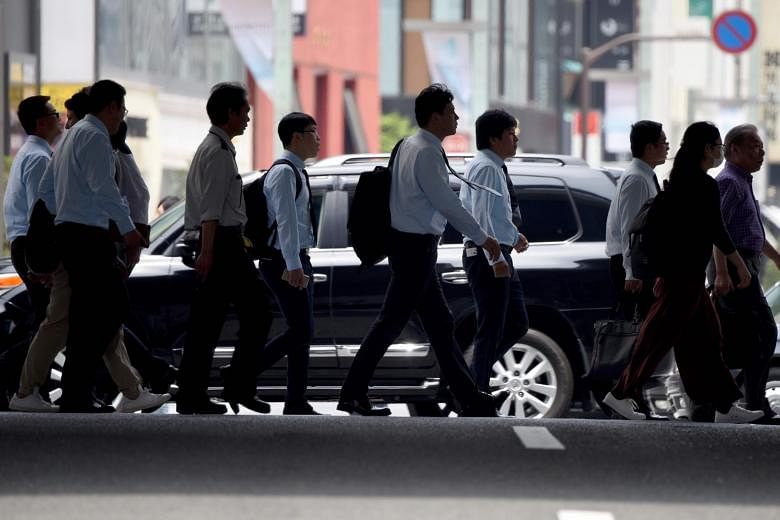TOKYO (REUTERS) - Japan's economic growth in the January-March period was severely revised down from the original estimate because of a downward adjustment in business inventories, underscoring the fragility of its export-led expansion.
Japan's economy, the world's third largest, expanded at an annualised rate of 1.0 per cent in the January-March period, more less than half the preliminary estimate of 2.2 per cent growth, Cabinet Office data showed on Thursday (June 8).
The revised gross domestic product (GDP) data compared with the median forecast of a 2.4 per cent expansion in a Reuters'poll of economists.
The Cabinet Office data follows a recent run of indicators that suggests continued economic growth in the current quarter because of solid exports and factory output, although wage growth and household spending remain lacklustre, despite a tight job market.
The weaker-than-expected GDP data will likely worry the Bank of Japan, which is expected to stand pat at its next rate review on June 15-16. A majority of the economists projected in a Reuters poll last month the BOJ's next move would be pulling back its stimulus.
Analysts say that to sustain economic growth, the export-led recovery must spread to domestic demand especially given the risk of potential slowdown in overseas economies, particularly the US economy, which some see in a late stage of expansion.
On the quarter, the Japanese economy grew a revised 0.3 per cent in real, price-adjusted terms, against a preliminary reading of a 0.5 per cent increase and the median estimate of a 0.6 per cent expansion.
Capital expenditure, a key component of GDP, rose 0.6 per cent for the quarter, versus the preliminary estimate of a 0.2 percent increase.
Inventories shaved 0.1 percentage point off growth, revised down from a 0.1 per cent point contribution originally posted.
Private consumption, which accounts for roughly 60 percent of the economy, rose 0.3 per cent, down from the preliminary 0.4 per cent gain. Tame wages and consumer spending have kept Japan from beating deflation, posing a key challenge for the BOJ in meeting its 2 percent price goal via a massive bond buying programme.
Taken together, domestic demand contributed 0.1 percentage point to growth, versus the initial 0.4 percentage point recorded. Net exports added 0.1 point to growth, unchanged from the preliminary estimate.

